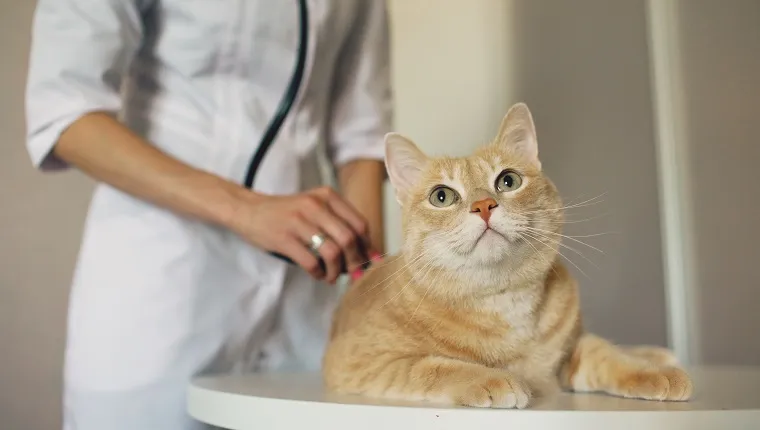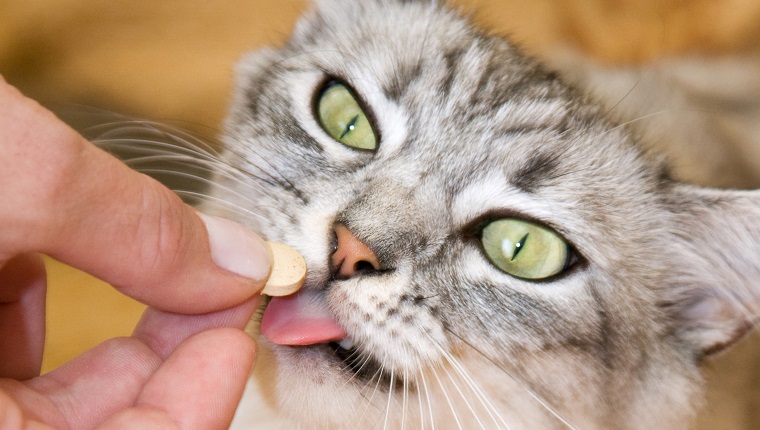Chlorpheniramine for cats is an antihistamine medicine that veterinarians primarily prescribe to help alleviate the symptoms of a range of allergies. It’s the generic name for a medicine that’s also sold under the brand names Aller-chlor, Chlor-Trimeton and Chlor-tabs.
In some cases, veterinarians can prescribe the drug as a sedative or use it to treat the skin condition atopy. It works by stopping the effect that histamine can have on a cat.
Chlorpheniramine for cats most often comes in tablet form. Veterinarians can prescribe it; although, in some forms it’s available over-the-counter. The drug has FDA-approval for human use, but vets also commonly prescribe it for animals.
You can easily order chlorpheniramine for your cat online from Chewy’s pharmacy with your vet’s prescription. Closely follow any instructions for the correct and safe dosage and frequency. Here’s what you should know about the uses, dosage, and side effects of chlorpheniramine for cats.
Uses Of Chlorpheniramine For Cats
Veterinarians generally prescribe chlorpheniramine for cats to treat the symptoms that allergies can bring on. These can include itching, sneezing, and runny nose.
This is a quick acting medicine and can help provide relief to cats suffering badly from allergies. It works by lessening the effect that histamine can have on cats.
In some cases, vets also prescribe it for the skin issue atopy, which causes a cat’s skin to become inflamed and itchy.
Dosage Of Chlorpheniramine For Cats

The following is a guideline for typical use of the drug in cats and must not replace your veterinarian’s advice for your individual pet.
Vets generally prescribe chlorpheniramine for cats in doses of one or two milligrams administered every twelve hours.
If your vet prescribes this medication, it’s important to always follow the exact dosage and administration instructions. This includes the length of time you should give the medicine to your cat.
Side Effects Of Chlorpheniramine For Cats
Chlorpheniramine can often produce the side effect of causing cats to feel drowsy while they’re taking the medication. In some cases, vomiting and diarrhea can also appear as side effects.
If you suspect your cat accidentally took too much of the drug and is suffering from an overdose, then you must contact your emergency veterinarian right away. In some instances, this drug can cause seizures in cats.
Has your vet ever prescribed chlorpheniramine to help your cat with their allergies? Did it work? Let us know in the comments section below!









